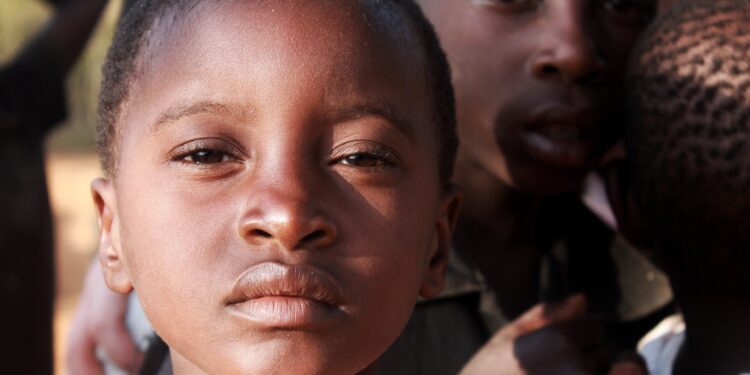Credit: Pixabay/CC0 Public Domain
When research at the University of California, San Francisco, showed that routinely treating children in sub-Saharan Africa with a common antibiotic could reduce under-five mortality, the World Health Organization (WHO) quickly recommended the treatment, but only for infants aged 1 to 11 months.
Now, UCSF researchers have shown that treating babies is not enough. The antibiotic must be given to all children up to age 5 to produce its full benefits, which are substantial: it reduces infant mortality by 14 percent in a region where 1 in 10 children die before age 5.
The WHO has recommended limiting the use of the antibiotic azithromycin, fearing that wider use could lead to antibiotic resistance. But research shows that the youngest and most vulnerable children – those under one year old – are better protected from respiratory and other life-threatening infections if their older siblings are also treated, so they do not pass on the infections.
“The results are very clear,” said the study’s first author, Kieran S. O’Brien, Ph.D., MPH, an epidemiologist and assistant professor at the Francis I. Proctor Foundation at UCSF. “By treating older children, you can protect younger children, who are particularly vulnerable.”
The results are published online on August 21 in the New England Journal of Medicine.
Concerns about antibiotic resistance
Azithromycin is a broad-spectrum antibiotic that is active against a wide range of pathogens, including those responsible for respiratory infections, diarrhea, and malaria, which are among the leading causes of child mortality in sub-Saharan Africa.
The initial 2018 study involved nearly 200,000 children in three African countries: Niger, Malawi and Tanzania. The children received a single dose of oral azithromycin or a placebo four times over two years.
This study reduced under-five mortality by nearly 14% overall and by 25% for babies under 5 months. In 2020, the WHO approved mass administration of azithromycin to children under one year of age. However, research has not shown that simply targeting infants would significantly reduce mortality.
In this recently published follow-up study, called AVENIR (Azithromycin for Children’s Lives in Niger; Implementation and Research), researchers tested the approach in different age groups to see if they could demonstrate its benefits by targeting only infants.
The study, conducted in partnership with Niger’s Ministry of Health and the Center for Research and Interventions in Public Health of Niger, repeated the same dosing regimen but was limited to one country, Niger, which has higher infant mortality rates than the other two countries in the original study.
They found that under-five mortality only decreased significantly when all children were treated.
Infants are exposed to pathogens at home
The researchers noted that most of the infants had older siblings in the household. These older children spend more time outside the home and play with other children, increasing the risk of infecting their younger, more vulnerable siblings.
The authors acknowledge that antibiotic resistance is a legitimate concern. They point out, however, that the intervention is limited to a small subset of the population for only a few years, and that the risk of resistance is outweighed by the potential to save lives.
Dr. Thomas M. Lietman, lead author of the study and an ophthalmologist at UCSF, hopes this will encourage the WHO to recommend the treatment for children up to age 5.
“In medicine, we are taught to avoid using antibiotics in a nonspecific way because of the risk of antibiotic resistance. But we found that if you do it in an organized way, you can reduce child mortality,” said Lietman, lead author of the original study. “How can you refuse a treatment that reduces mortality by 14% in areas where 10% of children don’t live to see their fifth birthday?”
More information:
O’Brien et al. New England Journal of Medicine (2024). DOI: 10.1056/NEJMoa2312093. www.nejm.org/doi/full/10.1056/NEJMoa2312093
Provided by University of California, San Francisco
Quote:Giving antibiotics to all children under 5 in Africa could save lives, researchers say (2024, August 21) retrieved August 21, 2024, from
This document is subject to copyright. Apart from any fair dealing for the purpose of private study or research, no part may be reproduced without written permission. The content is provided for informational purposes only.



